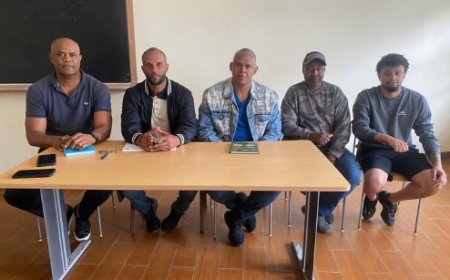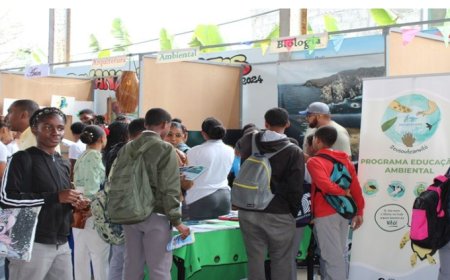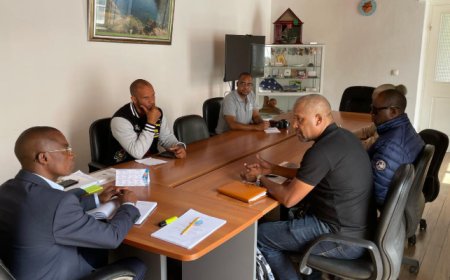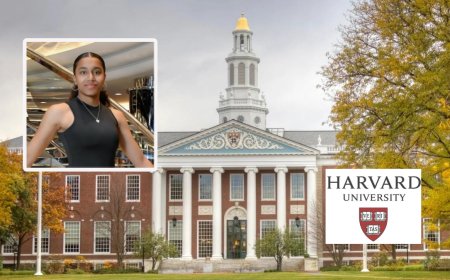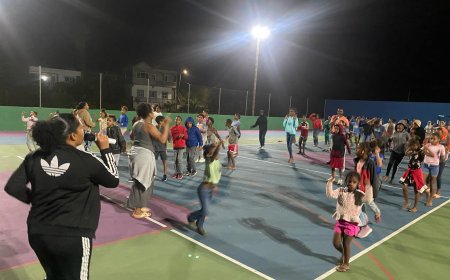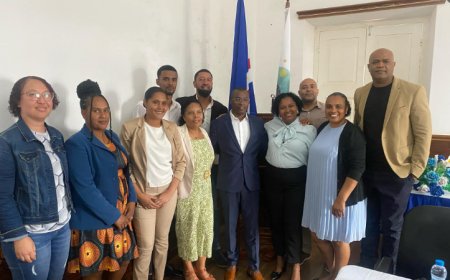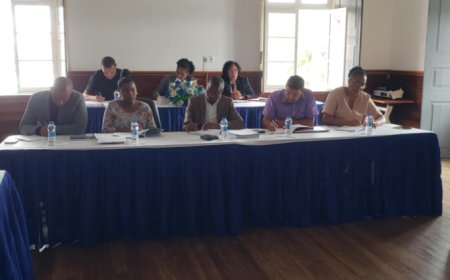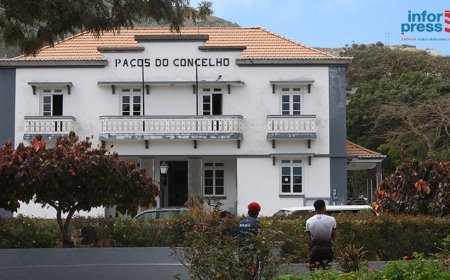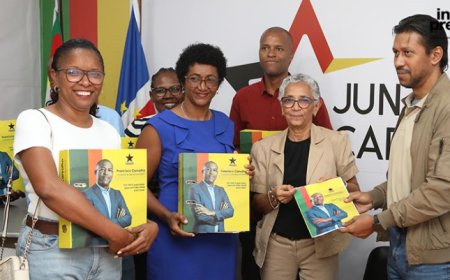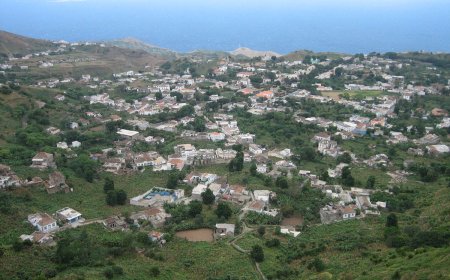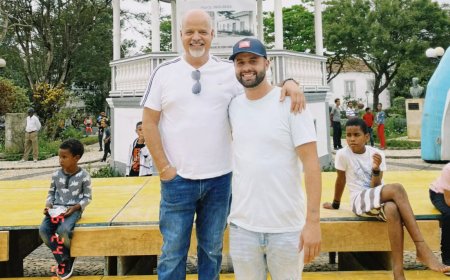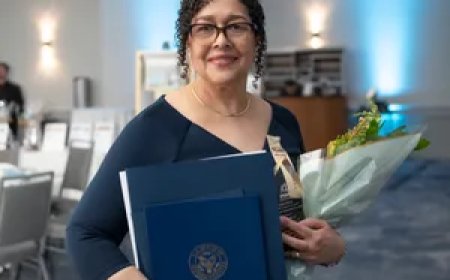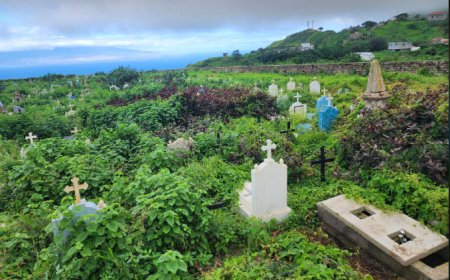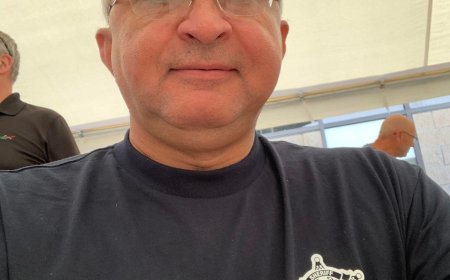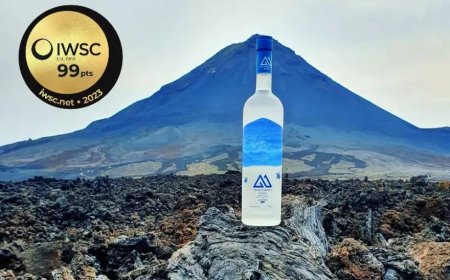Cachaço – a town that lives at the mercy of the luck of the rains and the remittances of emigrants
The community of Cachaço is about 12 kilometers from the city of Nova Sintra, and the residents live exclusively from livestock and agriculture, but with the lack of rain they have depended more on remittances sent by emigrants from the USA.
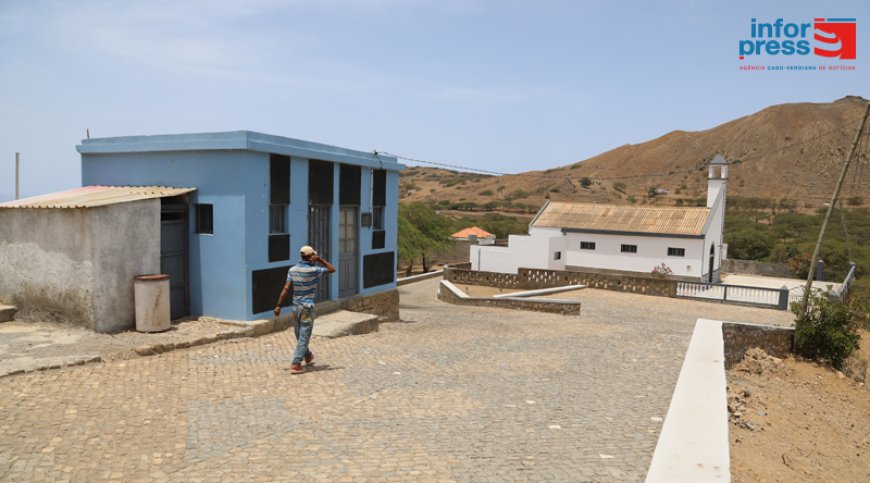
To Inforpress, João Xavier, a resident of the locality, said that twenty had been raising animals for over 20 years, even being nicknamed the “king of cattle”, since he had several heads, the exact number of which he could not specify.
But, with the consecutive years of drought, he said he was forced to sell some of his animals, or else release them, and as a result, today he has few cattle and much less goats, because, once released, the animals stayed on the loose on the rocks and today he is no longer able to capture them to keep them in the stable.
Despite the years of drought, he also stressed that his cattle and that of many other shepherds have been attacked by wild dogs, thus reducing the number of animals owned by each breeder.
At the moment, he assured that water for the cattle is not a problem, thanks to the reservoir built by the Ministry of Agriculture and Environment, but he highlighted the high price of corn and animal feed, which led him to dedicate himself more to raising herbivorous animals. , otherwise no income is visible.
Benvinda Pinto is another resident of the area who confirmed that most families make their living from raising livestock, but that over the years the situation has become a little more difficult, becoming most of the time dependent on remittances from family members.
Because, as he explained, on the part of the Government or the City Council of Brava there have been no public works that could employ some families, and those that are not dedicated to raising cattle have depended on some construction works that some emigrants do in the area.
As for the Government's investments, he recalled that the most recent was the laying of a road section made in 2022, reinforcing that there was a promise to continue for a second phase.
Another claim of this village is the improvement of conditions on the access road to the locality, which, as Benvinda Pinto said, is in “very poor condition” and many drivers have only suffered damage on this route, since the vehicles require frequent maintenance.
Likewise, it showed that they have some claim on the state of abandonment of the kindergarten in the locality, but informed that they are waiting for the city council, which has committed to carry out rehabilitation works and then make use of the space.
In this area, we also find Francisco Pinto, an emigrant in the USA, but who after retirement decided to return to Brava due to health problems, considering that the environment on the island is “more favorable and favorable” for his situation.
However, he asks the authorities to give the locality a little more attention, to make improvements to the connecting road, to solve the problem of water for human consumption, but also to create better conditions for young people, especially with regard to work, as a way of diverting them from social ills, as the community has nothing to offer except agriculture and livestock, two activities that have been threatened by the drought.
Mónica da Lomba, on the other hand, is a resident who is not dedicated to raising cattle or livestock and who considers that the situation in the locality is complicated, as, like many in the area, she lives off the remittances that emigrant relatives send.
Life in this community “is not easy”, according to the resident, who regrets the lack of attention on the part of the competent authorities.
https://www.youtube.com/watch?v=KmEWzw6e5bY
inforpress






